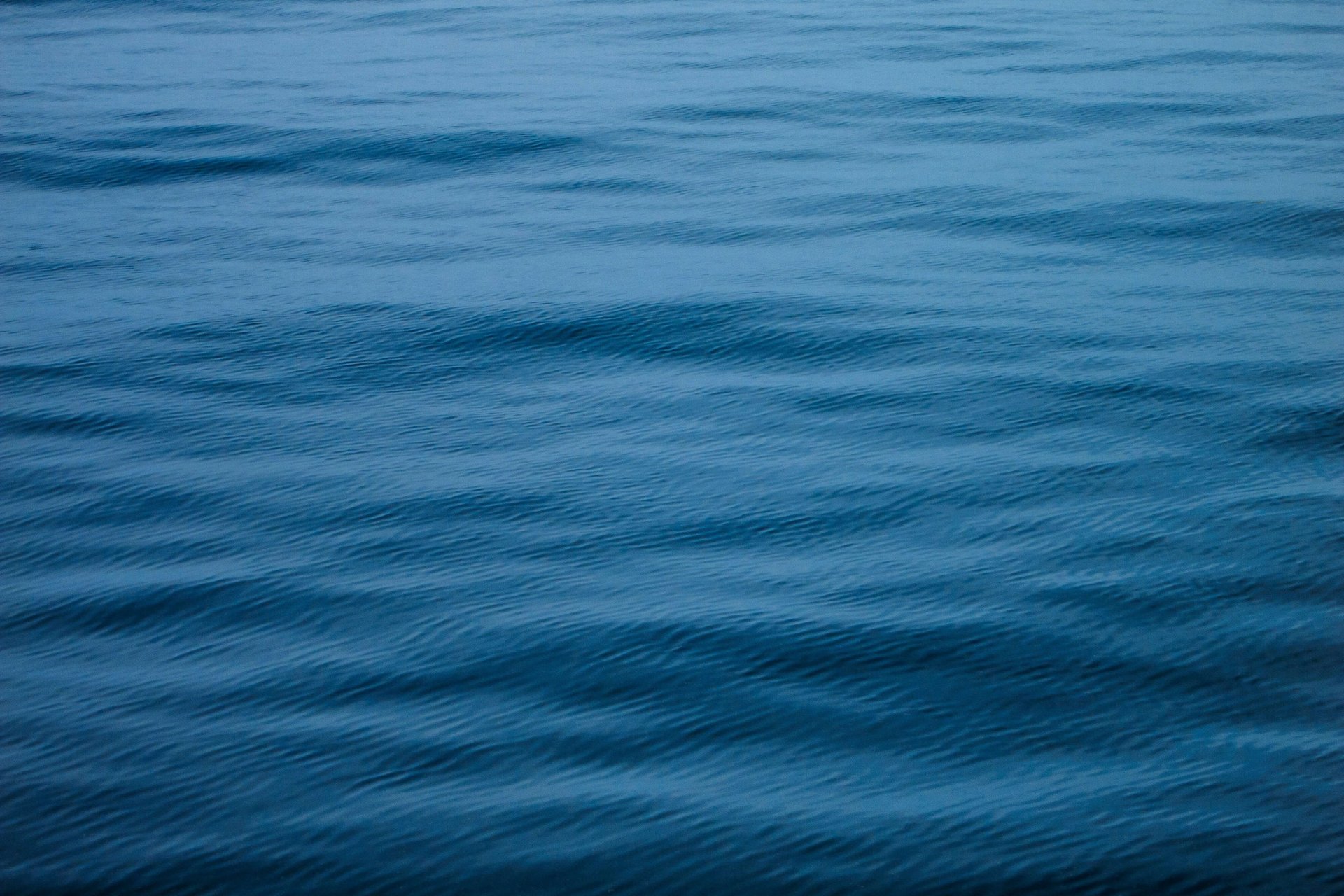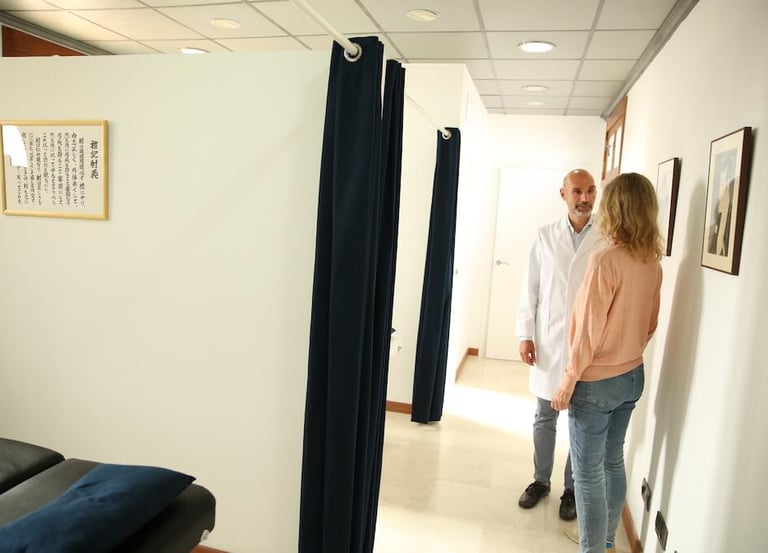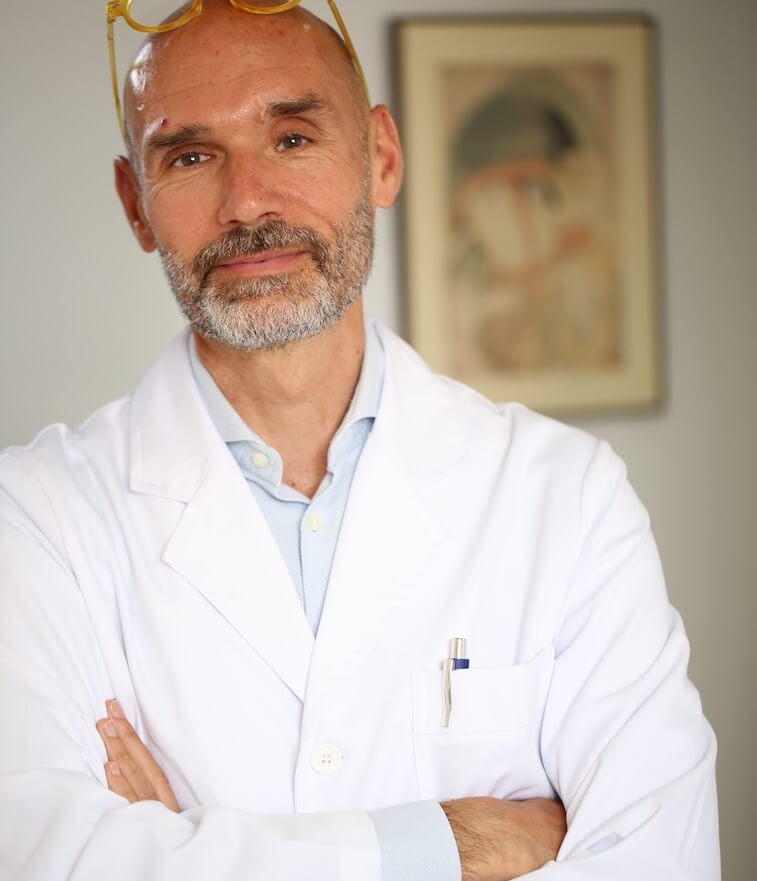Nuestra clínica permanecerá cerrada del 18/01/26 al 03/02/26. Gracias por vuestra confianza y apoyo; ¡esperamos veros de nuevo muy pronto! No dudéis en contactarnos para reservar vuestra próxima cita.

Transforma tu bienestar con un cuidado personalizado para la salud feminina
Acupuntura y medicina china especializada en fertilidad, embarazo y desequilibrio hormonal. Restaura tu equilibrio, reduce el estrés y potencia tu vitalidad en el corazón de Palma de Mallorca
Valorado con 5 estrellas por más de 80 clientes satisfechos
★★★★★
Salud de la mujer y fertilidad
Estos problemas comunes no tienen que ser tu normalidad.


😴 Mal sueño y baja energía
Estas agotada sin poder dormir o siempre te levantas cansada.
Bajones de energía, cambios de humor, ciclos irregulares, síndrome premenstrual, menopausia.
🌀 Estrés crónico y agobio
Estas constantemente "al limite" y no consigues nunca apagar tu mente.
🔥 Problemas digestivos
Hinchazones, malestar y las intolerancias alimentarias controlan tu vida.
Ya sea que estés planificando la concepción o queriendo mejorar tu salud reproductiva.
🤰 Embarazo
Náuseas, dolor de espalda, insomnio, ansiedad, preparación al parto.
Otros problemas:
Existe un camino eficaz
✅ Reequilibrar tu sistema nervioso
Alivio natural del estrés.
✅ Regular tus hormonas
Energía y estado de ánimo estables.
✅ Optimizar tu digestión
Alimentación cómoda y segura.
✅ Restaurar tu energía natural
Vitalidad sin estimulantes.
✅ Tratarte de forma holistica
No solo problemas aislados.
La acupuntura y medicina tradicional china pueden:


El secreto de la transformación: sanación ancestral con un enfoque moderno
Mi enfoque se basa en una formación única en las Islas Baleares: estudios universitarios rigurosos tanto en medicina china como en biología humana moderna. He tenido la oportunidad de ejercer en Australia, China y Mongolia antes de establecerme en Palma, lo que me ha dado una perspectiva más global sobre la salud.
Esta experiencia internacional, sumada a más de cinco años de estudios especializados y a haber guiado a más de 500 personas hacia sus objetivos de salud, me ha permitido refinar un método que combina sabiduría ancestral con un enfoque contemporáneo y basado en resultados.
Creo que tu camino hacia una mejor salud debe ser claro y con acompañamiento continuo. Por eso trabajaremos juntos con un plan personalizado, evaluando tu evolución paso a paso. Tu tratamiento cuenta con mi compromiso total para que consigas mejoras reales y perceptibles.
tasa de éxito para el dolor agudo
68%
58%
17%
tasa de éxito general para el dolor crónico
de los pacientes logran la resolución completa de los síntomas
de los pacientes recuperan un bienestar prácticamente normal
Resultados y eficacia de la acupuntura
La Medicina China es de confianza desde hace más de 2000 años
Dolencias reconocidas por la OMS
100+
85%
Elige tu camino hacia el bienestar
Planes de transformación personalizados
Alivio rápido
Para dolor agudo y dolencias simples.


Equilibrio óptimo
Para trastornos crónicos moderados.
Para trastornos crónicos complejos.
Transformación profunda




Historias reales, transformations reales
Más de 80 reseñas con 5 estrellas en Google
Fui a Puntos de Salud para tratar mi falta de menstruación, ¿y qué puedo decir? Después de una consulta con Salva y solo una sesión de acupuntura, por fin recuperé mi menstruación por primera vez en años... ¡Lo que los tratamientos hormonales no lograron durante años, la acupuntura lo hizo! Siguiendo el plan de Salva, incluso me vino regularmente por segunda vez, ¡y ahora sigo con el tratamiento!
LisKam (reseña completa en GMB)
Después de meses de tratamiento de acupuntura en Puntos de Salud, he notado grandes mejoras en mi migraña y endometriosis. Salva no solo es un profesional atento y encantador, sino que crea un espacio para desconectar y relajarte mientras enseña técnicas como la respiración consciente. Sus consejos para el día a día han sido clave en mi progreso. Recomiendo su consulta al 100%. ¡Gracias, Salva!
Nuria G (reseña completa en GMB)
★★★★★
★★★★★
Alivio de migrañas y endometriosis en Palma de Mallorca
★★★★★
Llegué a Salva recomendada por una amiga para tratar síntomas fuertes de la menopausia, y estoy encantada con los resultados. Después de pocas sesiones y el apoyo de hierbas chinas, noté una gran mejoría. Salva es amable, atento, respetuoso y un profesional con mucha experiencia. Es difícil encontrar a alguien así, ¡muy agradecida!
Aurora C (reseña completa en GMB)
Recuperar el ciclo y equilibrar las hormonas
Alivio de la menopausia con acupuntura y hierbas chinas


Tu primera consulta simplificada
Reserva tu cita y descubre cómo funciona
1. Consulta y diagnóstico
Evaluación inicial exhaustiva. Comparte tus inquietudes y sométete a diagnósticos TCM (lengua, pulso y palpación de meridianos).
2. Plan personalizado
Recibe un plan a medida de acupuntura, plantas medicinales, consejos nutricionales y de estilo de vida.
3. Sesiones de tratamiento
Sesiones regulares de acupuntura y otras terapias. Monitorea tu progreso con revisiones programadas y ajustes del plan.
4. Bienestar duradero
Disfruta de tu equilibrio restaurado, vitalidad y bienestar a largo plazo.
Preguntas frecuentes sobre la acupuntura y medicina china
¿La acupuntura duele?
Es una pregunta común, y totalmente comprensible. La idea de las agujas puede ser inquietante. Pero las agujas de acupuntura son increíblemente finas, casi tan delgadas como un cabello. La mayoría de las personas se sorprende por lo bien que se siente. Es posible que notes una ligera pesadez, un pequeño hormigueo o una oleada sutil de calor mientras tu cuerpo se activa. Para muchos, estas sensaciones gentiles son señal de que el tratamiento está haciendo efecto, y poco a poco entran en un estado de relajación profunda. Mi prioridad es tu comodidad, y siempre trabajo contigo para asegurar que la experiencia sea positiva y tranquila.
¿Cómo funciona la acupuntura?
Imagina que tu cuerpo consiste de una red de canales que sostienen tu salud. A veces, debido al estrés, una lesión o una enfermedad, este flujo puede alterarse. La acupuntura utiliza agujas finas como un cabello en puntos precisos para ayudar a restaurar el equilibrio natural de tu cuerpo y animarlo a sanarse por sí mismo. La acupuntura no solo alivia el dolor, sino que también reduce la inflamación, mejora la circulación y calma el sistema nervioso. Es como darle a tu cuerpo una señal clara para relajarse, resetearse y reconectar con su capacidad natural de sanar.
¿Es segura la acupuntura?
Absolutamente. En manos de un profesional debidamente formado y titulado, la acupuntura es una práctica suave y notablemente segura. Aunque los riesgos graves son muy poco frecuentes, esta es precisamente la razón por la que es tan importante elegir a un profesional con experiencia. Posee el conocimiento para utilizar las técnicas correctas y siempre emplea agujas estériles y de un solo uso, garantizando así tu bienestar y tranquilidad.
¿Qué dolencias puede tratar la acupuntura?
Muchas personas recurren a la acupuntura no solo para aliviar dolores persistentes, como de espalda, cuello, hombros, rodillas o artritis, sino también para recuperar un equilibrio más profundo. Puede ayudar suavemente a tu cuerpo en épocas de estrés, calmar la intensidad de las migrañas, favorecer un sueño reparador, aliviar molestias digestivas y ofrecer acompañamiento durante el proceso de fertilidad.
¿Cuántas sesiones necesitaré?
Esto realmente depende de ti y del problema que tienes. Una molestia reciente podría mejorar en solo unas pocas visitas. Para desequilibrios más profundos o de larga data, como cambios hormonales o dolor crónico, el cuerpo suele beneficiarse de un acompañamiento constante durante varias semanas o meses. Es un proceso de guía y apoyo, no una solución rápida, y trabajaremos juntos para encontrar el ritmo que mejor se adapte a tus necesidades.
¿Hay efectos secundarios?
La mayoría de las personas se sienten profundamente relajadas y en calma. Aunque no es común, a veces el cuerpo responde a su manera: puedes tener un pequeño morado, notar sensibilidad en alguna zona tratada, o sentirte más cansado de lo habitual. En ocasiones, el tratamiento puede liberar emociones a medida que tu cuerpo recupera su equilibrio; muchas tradiciones de sanación ven esto como una señal natural y positiva de que tu organismo está soltando lo que ya no necesita. Siempre te guiaré sobre qué esperar y cómo cuidarte después del tratamiento.
¿La acupuntura puede mejorar la fertilidad?
Esto realmente depende de ti y del problema que tienes. Una molestia reciente podría mejorar en solo unas pocas visitas. Para desequilibrios más profundos o de larga data, como cambios hormonales o dolor crónico, el cuerpo suele beneficiarse de un acompañamiento constante durante varias semanas o meses. Es un proceso de guía y apoyo, no una solución rápida, y trabajaremos juntos para encontrar el ritmo que mejor se adapte a tus necesidades.
¿Cuando deberia empezar con la acupuntura si quiero quedarme embarazada?
Lo ideal es comenzar por lo menos tres meses antes de buscar el embarazo, para dar tiempo a regular el ciclo y apoyar el equilibrio hormonal. Aun así, muchas mujeres se benefician aunque lleven más tiempo intentándolo. En la consulta inicial valoraremos tu situacion especifica y estableceremos un plan realista de tratamiento.
¿Listo para transformar tu bienestar?
Reserva hoy tu cita personal y comienza tu viaje hacia el bienestar completo.
Contáctame
Contacto
+34 722 66 70 66
info@puntosdesalud.es
Horario: de lunes a sabado
Solo con cita previa
PUNTOSdeSALUD ® 2025. Todos los derechos reservados..
Términos y condiciones | Política de privacidad | Aviso legal médico